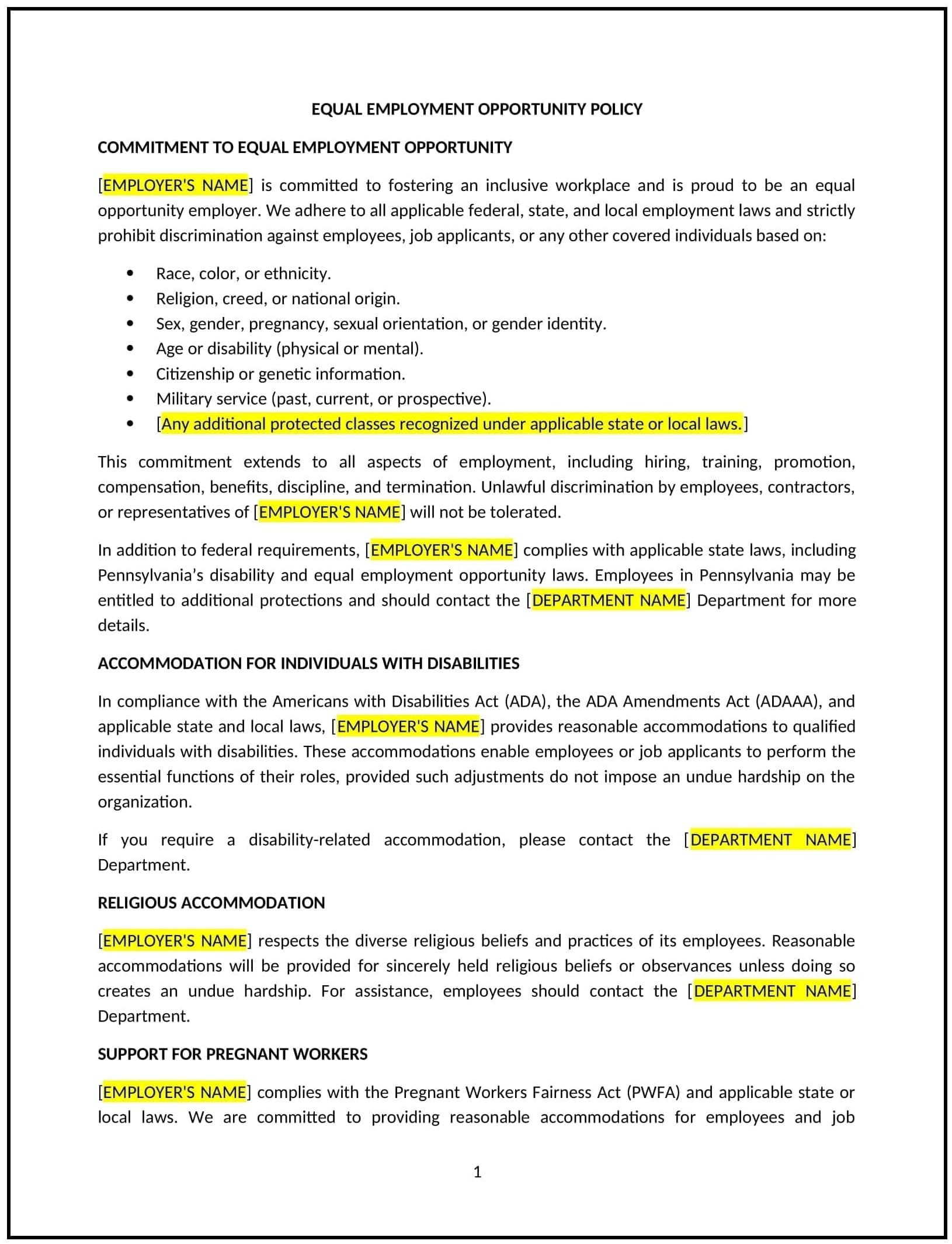Equal employment opportunity policy (Pennsylvania): Free template
Got contracts to review? While you're here for policies, let Cobrief make contract review effortless—start your free review now.

Customize this template for free
Equal employment opportunity policy (Pennsylvania)
This equal employment opportunity (EEO) policy is designed to help businesses in Pennsylvania promote a fair and inclusive workplace by prohibiting discrimination and ensuring equal opportunities for all employees and job applicants. Whether recruiting, hiring, promoting, or providing workplace accommodations, this template provides clear guidelines to support compliance with federal laws like Title VII of the Civil Rights Act and Pennsylvania-specific regulations, such as the Pennsylvania Human Relations Act (PHRA).
By using this template, businesses can foster diversity, ensure compliance with anti-discrimination laws, and build a positive workplace culture.
How to use this equal employment opportunity policy (Pennsylvania)
- Define EEO principles: Clearly state the organization’s commitment to providing equal employment opportunities to all individuals, regardless of race, gender, age, disability, or other protected characteristics.
- Outline protected characteristics: Include all protected categories under federal and Pennsylvania laws, such as marital status, religion, and national origin.
- Address employment practices: Specify how the policy applies to various aspects of employment, including hiring, promotions, pay, training, and accommodations.
- Include complaint procedures: Provide steps for employees to report discrimination, harassment, or retaliation, ensuring confidentiality and prompt resolution.
- Reflect Pennsylvania-specific considerations: Tailor the policy to address additional protections under Pennsylvania law, such as requirements for pregnancy accommodations or protections for LGBTQ+ employees.
Benefits of using an equal employment opportunity policy (Pennsylvania)
A well-structured EEO policy supports inclusivity and compliance. Here's how it helps:
- Promotes diversity: Encourages an inclusive workplace culture that values and respects employees from all backgrounds.
- Supports compliance: Aligns with Pennsylvania and federal anti-discrimination laws, reducing legal and reputational risks.
- Enhances recruitment: Attracts a broader talent pool by demonstrating a commitment to fairness and equal opportunities.
- Encourages accountability: Provides clear guidelines for handling discrimination complaints and enforcing the policy.
- Reflects local needs: Addresses Pennsylvania’s specific labor protections and workplace considerations.
Tips for using an equal employment opportunity policy (Pennsylvania)
- Communicate the policy: Share the policy with employees during onboarding and post it in visible locations, such as break rooms or the company intranet.
- Train managers: Provide training on recognizing and preventing discrimination, harassment, and retaliation in the workplace.
- Monitor hiring practices: Review recruitment and promotion practices to ensure they align with EEO principles.
- Encourage reporting: Create a safe environment where employees feel comfortable reporting discrimination or harassment without fear of retaliation.
- Review periodically: Update the policy to reflect changes in Pennsylvania laws, federal regulations, or workplace needs.